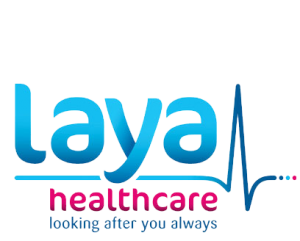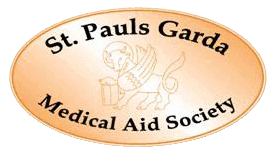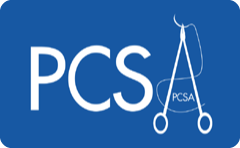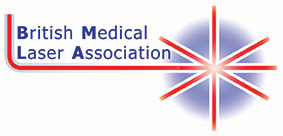 Download this information as a PDF
Download this information as a PDF
Mr Smith who is 50 years old was referred to me by his General Practitioner with a generalised itchy rash for the previous five months. He was moisturising with Silcocks base and applying Betnovate ointment for the past month without benefits. He had no history of any rashes or skin problems in the past but he remembered his father suffering from dry itchy skin for many years. His brother suffered from dandruff.
Mr Smith also suffered from hypertension for the past two years and was on Diovan 160mg and Atenogen 50mg once daily. He gave up smoking two years ago and admitted to drinking “ten or twenty pints per week”.
When I examined him closely I found that he had a dry itchy scaly rash particularly affecting the posterior aspect of his arms and on his anterior shins. He also had large plaques of dry itchy scaly skin with excoriations on his back and chest. In addition he had thick scaly plaques on his scalp and a rash on his anterior hair line. He also had an erythematous scaly itchy rash in his eyebrows, in his naso labial folds and his peri‐anal area. Examination of his nails showed no abnormality.
Clinically I was quite sure that he was suffering from Psoriasis. The typical thick scales were not very apparent on his arms and legs because of the use of potent topical steroids over the past few months. His father probably also suffered from Psoriasis. Sounds like his brother may have Seborrhoeic Dermatitis which is closely related to Psoriasis and often found in the same patient or sometimes in the same family. In fact Mr Smith showed evidence of Psoriasis in his body and Seborrhoeic Dermatitis in his scalp, face and peri‐anal area. This is sometimes known as Seborroeis.
Mr Smith quite over weight with a BMI of 35. A random blood sugar was 10.9. Urinalysis was . His BP was 160/100.
I explained to Mr Smith that he had Psoriasis and gave him some information about the condition. I stressed the fact that it was not infectious, dangerous or cancerous. I backed up this information with some leaflets and booklets from the Psoriasis Association of Ireland. I explained to Mr Smith that his skin problems were only a reflection of his poor general state of health. He was overweight, may be developing Diabetes fully controlled hypertension and was drinking too much alcohol. (I suspect he was having more than he admitted to me). I explained that I could clear his rash but we would have to adopt a holistic approach and look at his overall health. He agreed to co‐operate as the itch was effecting his sleep and he was quite embarrassed by the rash particularly on his face and the backs of his hands. He agreed to give up alcohol for a few months and go on a strict weight reduction and low sugar diet. I explained to him that drugs can sometimes participate or aggravate Psoriasis and beta blocker was one of the more common offenders. We therefore stopped his Atenogen and put him on a calcium antagonist instead. I explained that Silcocks base was not a good moisturiser and is normally used a prescribed emulsifying ointment instead which I instructed him to apply liberally rubbing downwards using at least twice a day to the affected areas on his body. He was to avoid soaps and other irritants on his skin and I gave him a soap free wash to use in the shower.
I explained to him that although steroids can reduce some of the scaling it will not clear the rash and can sometimes cause a flare up in Psoriasis particularly if the . I advised him to use Dovobet ointment to the affected areas of his body for one month but warned him never to apply this to the face because it contained a potent topical steroid in combination with calcipatrol.
I advised him to wash his hair at least three times a week with Nizoral shampoo. I also prescribed Dovonex scalp application twice a day to the scaly rash on his scalp. I prescribed Daktacort cream for the rash on his anterior hair line, eyebrows, ala‐nasi and ala‐nasi folds and the peri‐anal area.
Mr Smith admitted to being over worked from running his own business but agreed that he could delegate more tasks to his employees if he organised himself better. He also took virtually no exercise.
Mr Smith returned in a months time looking much better. The Seborrhoeic Dermatitis rash on his face had cleared completely and he no longer had any… . He had lost 8lbs in weight and his B/P had dropped to 140/90. The rash on his body was about 50% improved and was no longer itchy. He had reorganised his work schedule and managed to take two afternoons off a week to play golf. He also went for long walks on the beech with his dog at the weekends. He admitted he found it difficult having to stop drinking alcohol altogether but now is only having 3 pints on Fridays and Saturday nights.
I explained to him that it normally takes 6‐12 weeks to clear Psoriasis. I was extremely happy with his progress and I asked him to stop using the Daktacort cream on his face and groin. I asked him to reduce the Dovobet ointment on the body, to only be used on Saturdays and Sundays. I introduced Dovonex cream which he was to use Monday to Friday once a day from the rash on his body. I advised him to stop the Dovonex scalp application but to continue using Nizoral shampoo twice a week and to bring the sods down on to his face and groin leaving it soak into these areas for three or four minutes every time he uses it.
When I reviewed him a month later his rash was 90% clear on his body and he had lost a further 6lbs in weight. He was looking much fitter and his golf handicap had substantially improved. I asked him to stop using Dovobet altogether and just use Dovonex cream once daily to any residual rash on his body until it was completely cleared. I referred him back to his GP with a discharge letter and a glucose tolerance test.
This case is quite typical of the kind of problems we face with patients with Psoriasis every day. It highlights the importance of adopting a holistic approach when managing Psoriasis and to look beyond the skin. Overlap of skin conditions is not uncommon and can create difficulty with diagnosis and treatment. In this case Mr Smith had both Psoriasis and Seborrhoeic Dermatitis and each rash required different treatments. A careful note of history should always be taken as any drugs can aggravate skin conditions including Psoriasis. Table 1 lists the most common drugs that aggravate Psoriasis.
Regular follow up is important both to monitor treatment and to motivate the patient to persevere especially with life style modification such as weight control, alcohol consumption and smoking. Underlying medical conditions should always be considered particularly Diabetes which can precipitate or aggravate many skin conditions. Stress, alcohol and obesity are other common factors that can significantly affect Psoriasis and many other skin conditions.
Nail changes such as (lifting of the nail from the nail plate) and pitting are common in Psoriasis but are not always present.
Dovobet followed by Dovonex works extremely well in many but not patients with Psoriasis. It has the advantage of giving reasonably fast results in the first month and often providing a long term remission in patients with Psoriasis. However it is important that patients are weaned off from Dovobet onto Dovonex after two months. Many patients are tempted to continue with Dovobet indefinitely as the steroid component can give more dramatic results initially in the treatment. However prolonged use in topical steroids can lead to systemic absorption resulting in adrenal suppression and it can also cause skin thinning and …. . Dovobet should never be used in the face as it contains a potent topical steroid which can cause Rosacea or Peri‐oral Dermatitis. For patients who don’t respond to Dovobet followed by Dovonex short contact Dithranol therapy using Dithra cream can by a very effective alternative but patients needs careful instruction on how to use this product as skin burning and staining is common with Dithra cream.
All patients with Psoriasis need to be educated about the disease and the various treatment options. The Psoriasis Association of Ireland is a wonderful source of useful information for patients. There are a number of useful web sites that it also suitable for patients information. (See table 2).
Dr David Buckley from Tralee specialises in Primary Care Dermatology
Patients name has been changed for confidentially














